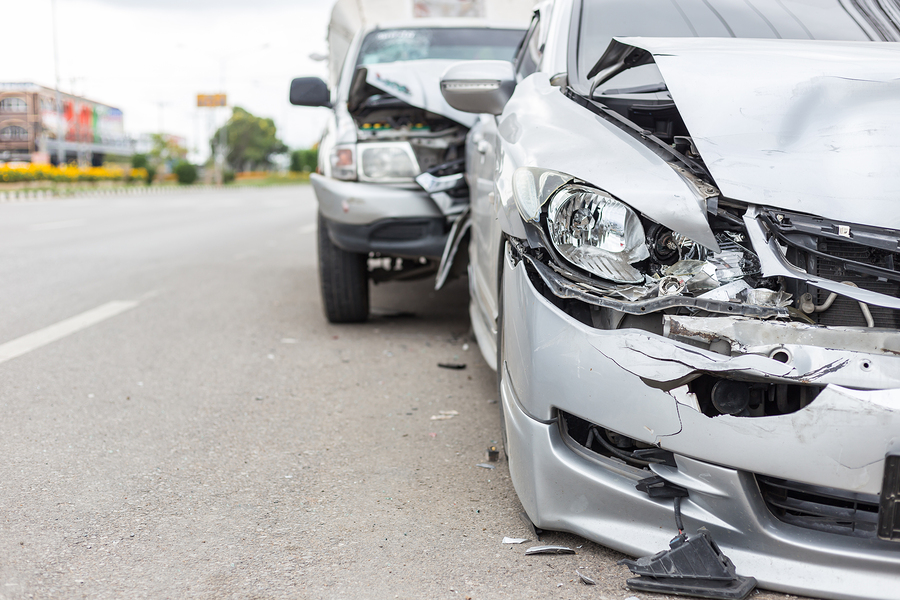Car accidents—we see them on Virginia roadways from time to time, but we never expect we will crash. When you are in a crash, the accident scene is more chaotic than you might expect.
From the minute someone crashes into your car, everything you say and do can hurt your health and legal rights.
Everything you do after an accident may affect your insurance claim, what level of recovery you can make, and how much money you can ultimately recover from your claim.
What to Do Following a Car Accident
You can preserve the value of your claim after a Virginia car accident.
These include:
- Get to a safe location - if your car is in a travel lane, move it as far onto the side of the road as feasible, if you can.
- Photograph the scene of the accident - if you can safely do so, get photos of the immediate location of the accident. Glass, skid marks, car debris—capturing any features of the scene can help.
- Contact law enforcement - call law enforcement as soon as possible so they can help assist with managing the emergency and memorialize the accident in a report.
- Gather information - get names, addresses, and contact information, and insurance information of the other driver(s) involved in the accident. Gather the same information from any witnesses to the accident if you can.
- Accept medical attention - failing to get medical attention after the accident is one of the most significant factors that can jeopardize the value of a claim. Regardless of how you feel, seek immediate medical attention following a car accident. You are high on adrenaline and may have no idea the extent of your injuries.
- Contact a car accident attorney - a car accident injury lawyer can help you understand what rights you have under Virginia law.
- Maintain records - keeping good records is a must. Track all property repair and medical treatment expenses, such as mechanic bills for necessary repairs to your car, doctor visit invoices, and prescription and over-the-counter items you purchase for caring for your injuries.
Each of these steps can help lay a strong groundwork for your claim for damages and maximize the compensation you recover.
What to NEVER Do Following a Car Accident
Just as there are affirmative actions you can take to preserve the value of your claim, there are actions that could hurt the value of your claim.
Some of these include:
- Displaying emotions - avoid any type of emotional outburst at the scene of an accident. It will do you no good to start yelling at the other driver for the accident. Make sure everyone is safe, exchange your information with the other driver, and wait for law enforcement.
- Apologizing at the scene - by apologizing to any person at the scene, including any drivers or passengers involved, you could be setting yourself up for problems in terms of establishing that you were not at least partially at fault for the accident.
- Fault comments - avoid making statements like “I did not see the car,” or any similar statements suggesting you may have contributed to the accident. Remember, statements to other drivers, passengers, or law enforcement could come back to hurt your claim.
- Sharing about the accident on social media - while people normally update their friends and family, you should not report your accident on social media. The insurance company will investigate your claim and is likely to check your social media feeds. If they can find a way to twist what you post to deny or minimize your claim, they will.
- Missing doctor follow-ups - if your medical care provider tells you to follow up for tests, X-rays, or treatment, do so. Failing to get prescribed treatment could hurt your claim if the defendant and/or their insurer allege that you are responsible for the extent of your injuries because you failed to get appropriate care.
- Recorded statements - whether your insurer or the other party’s insurer contacts you, do not provide a recorded statement without first talking to an attorney.
- Signing documents - do not sign any documents without consulting with a lawyer.
Any of these actions can cause problems for your claim. To get the best settlement for your injuries, you should avoid making these mistakes.
Frequency of Car Accidents in Virginia and Insurance Requirement Implications for Claim Values
In one recent year, there were more than 105,000 accidents on Virginia roadways. As a result of these accidents, more than 800 people lost their lives, and another 52,600 additional suffered injuries. These numbers have declined, but are still significant.
Additionally, since Virginia has a low minimum auto insurance coverage requirement, it is likely a car accident victim will be required to account for every dime they are claiming when they put in an accident claim.
Statute of Limitations and Insurance Company Adjusters
One of the most frustrating occurrences for car accident victims is insurance company adjusters who seem to be willing to wait them out, hoping the statutes of limitations in Virginia will expire.
In Virginia, the statute of limitations—the deadline to file a car accident claim—is two years from the date of an accident. While this does not mean insurers will be any more cooperative, you have more time to try to settle your claim informally with the insurance company before having to file a lawsuit in court.
How a Car Accident Attorney Can Help Victims

At the heart of every personal injury claim is negligent behavior. A Virginia auto accident lawyer can help you gather the evidence to show who was negligent and recover the maximum amount of compensation possible.
An attorney can protect your rights during the claims and settlement process. An attorney familiar with Virginia laws can take over the negotiation and settlement process on your behalf. Even so, you always control your case, including whether to accept or reject any settlement offer.
If you were injured in a Virginia car accident, or your loved one lost their life on a Virginia road and you don't know your legal options, contact a Virginia personal injury attorney today and schedule a free, no-obligation consultation.


